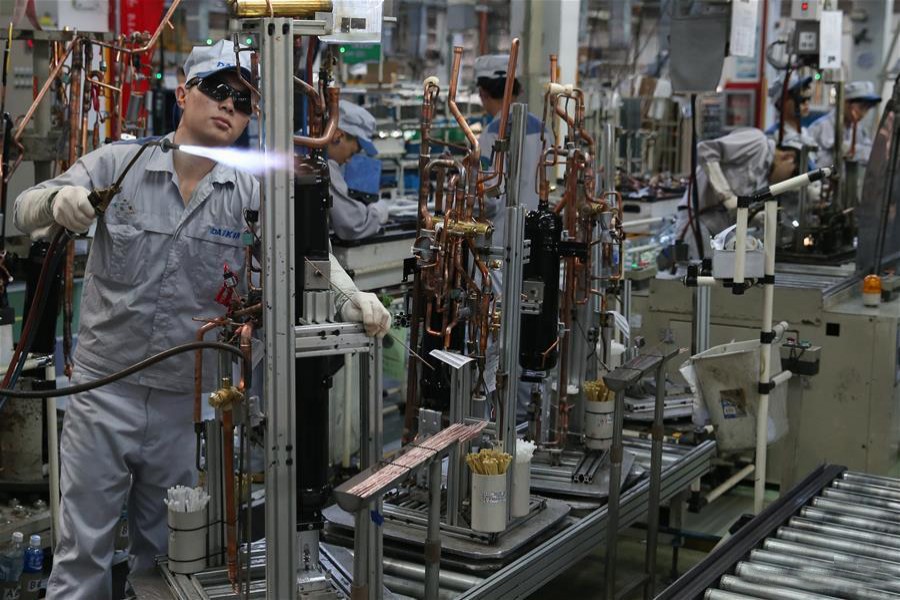Beijing, Brussels to support free trade, promote multilateralism
China economic growth slows in second quarter

Published :
Updated :

China and the European Union (EU) on Monday agreed to jointly work to safeguard the rules-based international order, promote multilateralism, and support free trade, reports Agencies.
The agreement was reached during the 20th China-EU leaders' meeting, which was co-chaired by Chinese Premier Li Keqiang, European Council President Donald Tusk, and European Commission President Jean-Claude Juncker.
China and the EU, as two major forces and economies of the world, have the joint responsibility to safeguard the rules-based international order, advocate multilateralism, support free trade, and promote world peace, stability, and development in the current international situation, a press release from the meeting said.
Meanwhile, China said on Monday its economic growth slowed slightly in the second quarter as a trade war with the United States gained pace, while it warned of the global damage that could be caused if the row persists.
The world's second-biggest economy expanded 6.7 per cent in April-June, down from 6.8 per cent in the first quarter and in line with a forecasts in an AFP survey of economists.
The data was released just as European Council President Donald Tusk said at an EU summit with China in Beijing that trade tensions could spiral into a "hot conflict", calling on the US, China and Russia to find a resolution.
Despite the quarterly deceleration, growth was still higher than the annual target of around 6.5 per cent set by the government, but China nevertheless faces an "extremely complex environment both at home and abroad", said Mao Shengyong, a spokesman for the national statistics bureau.
Beijing faces a multi-front battle to defend its economy, fighting to cut its debt mountain while the yuan currency and Chinese stock markets tumble.
"World trade protectionism continues to heat up, posing a major challenge to the world economic recovery and adding challenges and uncertainties for us," Mao said.
"From our domestic perspective, economic development has still been unbalanced and unstable, and is still in the process of structural adjustment and transformation."
The impact of the deepening trade conflict with the United States was yet to fully kick in, Mao said, noting that Beijing would continue to assess the situation in the second half of the year.
But he added that the fight "will have an impact on the economies of both China and the United States, and now that the world economy is deeply integrated, and the industrial chain is globalised, many related countries will also be affected", Mao said.


 For all latest news, follow The Financial Express Google News channel.
For all latest news, follow The Financial Express Google News channel.